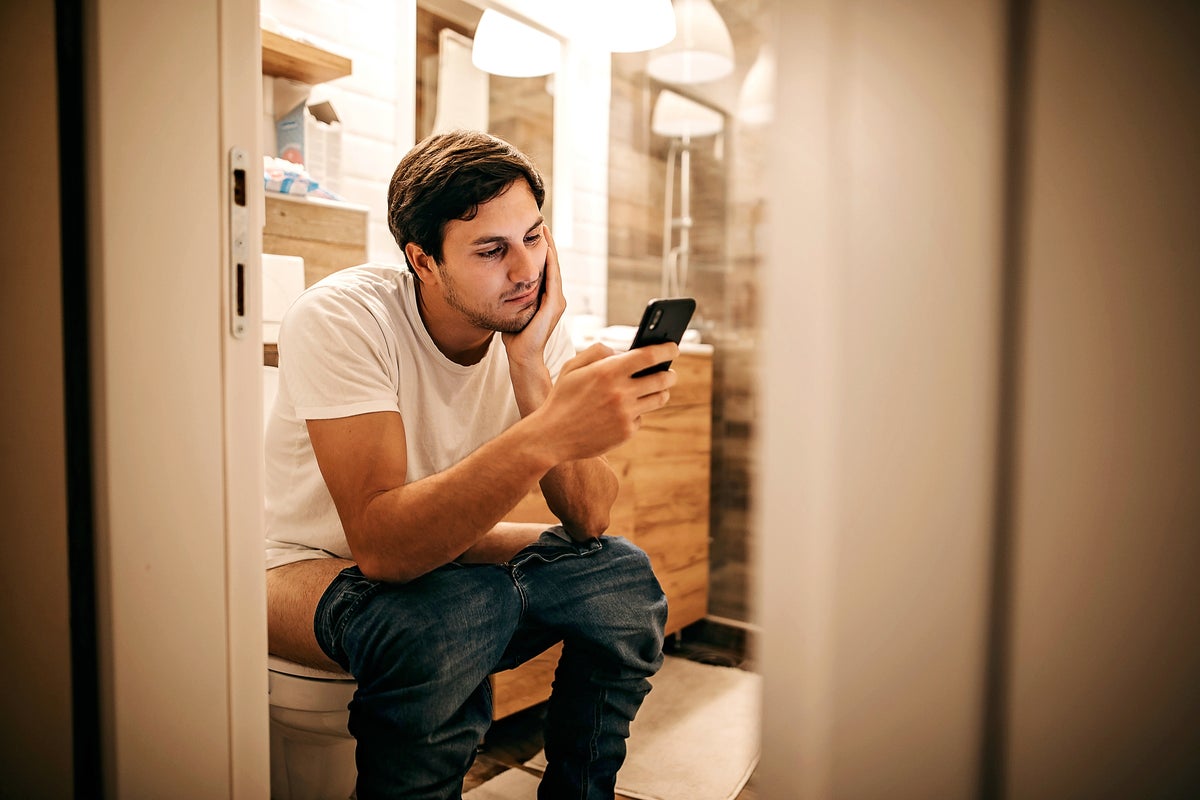
Using a smartphone while sitting on the lavatory increases the risk of developing haemorrhoids, a study has found.
Researchers suspect that the prolonged sitting on the loo increases pressure in the key veins around the bottom.
Bathroom phone users were found to spend longer in there than non-users.
Experts have for some time suspected a link between scrolling on the loo and haemorrhoids – or piles, which are lumps inside and around the bottom that cause pain or itching.
The academics questioned 125 adults having colonoscopies – where a doctor looks into the rectum with a camera – at Beth Israel Deaconess Medical Centre in Boston, US.
About two-thirds of participants reported scrolling through their smartphones while seated on the lavatory.
They were 46 per cent more likely to have haemorrhoids than those who did not take their phone in with them.
Reading news and using social media were the most popular smartphone activities.
Straining while “going” was not linked with an increased risk of piles, in contrast to some earlier studies.
Dr Ernesto Gonzaga, a gastroenterologist at the Hospital of the University of Pennsylvania and who did not contribute to the study, told ABC News: “The likely explanation is that prolonged sitting increases pressure in the veins around the rectum, which can contribute to haemorrhoids.”
Downward pressure on the veins is not increased by sitting in a chair, the researchers said, because the seat supports the pelvic floor, but on a lavatory this is not the case.
One NHS estimate put the proportion of UK people will develop haemorrhoids in their lifetime at between a third and half.
In addition, the study found that people who used smartphones on the loo spent significantly more time in there than people who did not. Some 37.3 per cent of smartphone users spent more than five minutes per visit on the lavatory, compared with 7.1 per cent of non-smartphone users.
Men appeared more likely than women to spend six minutes or more on the loo, though “this difference did not reach statistical significance”, the study reported.
Dr Gonzaga said phone users also reported getting less exercise than non-users, suggesting that their lifestyles could also contribute to their risk of piles.
He noted that the study, published in the journal PLOS One, had some limitations as it looked at a small number of subjects and relied on self-reporting.
The scientists advise people to leave their smartphones outside the bathroom.
They said links between smartphone use, particularly among young people, with increased depression, anxiety and poor sleep were well documented.
And they highlighted a study from last year looking at 440,000 people in the UK that found an association between weekly mobile phone usage and a greater risk of heart disease.
Major UK retailer to hire thousands of Christmas staff
Utah State University under fire after animals irradiated in lab tests
Eating a late breakfast? Warning it could be linked to dying sooner
Watch live: Lisbon emergency crews work at funicular railway crash site
Thousands of diabetic pregnant women to get ‘game-changing’ artificial pancreas
Mapped: NHS patients facing postcode lottery for weight-loss jab Mounjaro







